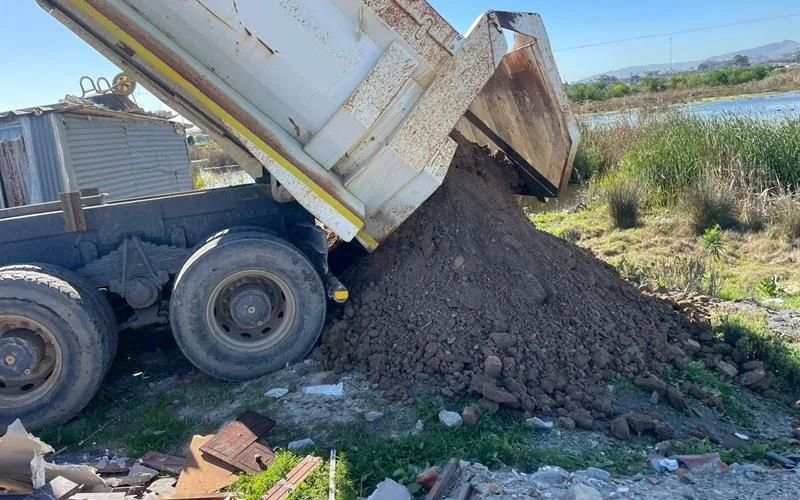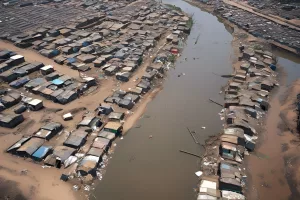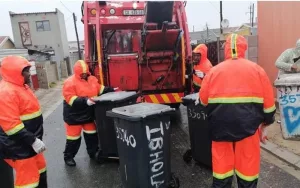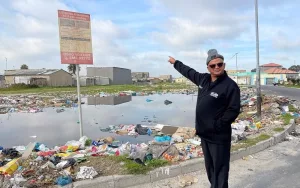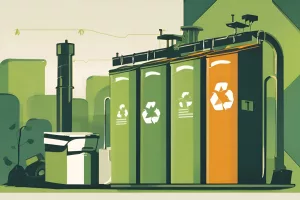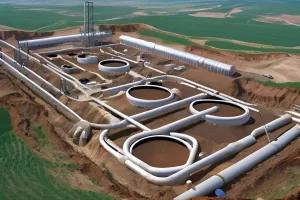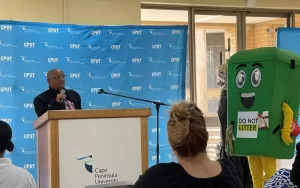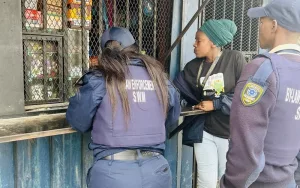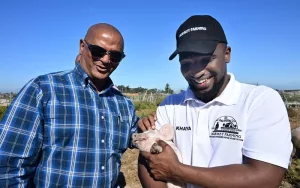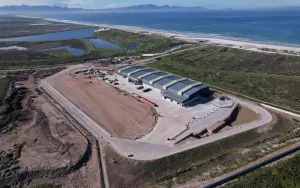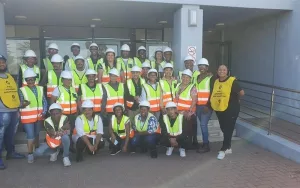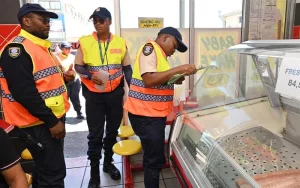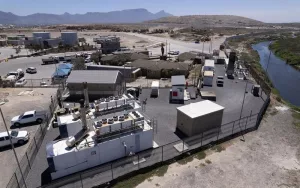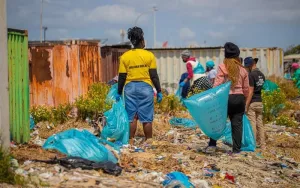Cities fight illegal dumping with strong laws, punishing offenders by impounding vehicles and issuing fines. Police patrol trash hotspots while communities help by reporting illegal dumpers and watching over neighborhoods. New cameras and better waste facilities make it easier to catch and stop those who dump waste carelessly. Together, officials and citizens work to keep the city clean, safe, and full of pride for everyone to enjoy.
The LunaRecycle Challenge is an exciting NASA competition that aims to turn waste from past Moon missions into useful resources like water and energy. With a big prize of $3 million, it invites creative thinkers from around the world to design ways to recycle human waste left by astronauts. This effort is part of NASA’s Artemis program, which plans to establish a lasting human presence on the Moon. Participants can work on building reallife recycling systems or create virtual models to test their ideas. The challenge highlights the importance of being responsible and sustainable, not just on Earth, but also in space!
In Nomzamo’s informal settlements, life is a tough struggle against pollution and waste. Stagnant sewage and garbage fill the streets, making it dangerous for children and the elderly. Residents have built wooden bridges to help kids cross the filthy water on their way to school, showing their resilience despite the harsh conditions. Broken promises from the city leave them feeling abandoned, as they wait for real solutions to their problems. The community is calling for better waste management and support, hoping for a cleaner, safer future for everyone.
Dunoon, a community in Cape Town with a high population density, is launching a sixmonth trial program to combat unauthorized dumping. The City of Cape Town plans to increase garbage collection from once a week to three times a week, starting on September 1, 2024. The initiative aims to promote a cleaner and healthier environment, improve community wellbeing, and protect the environment from pollution caused by litter. The city is urging all Dunoon inhabitants to participate in the program and refrain from unlawful dumping.
Cape Town’s Urban Waste Management Bylaw Enforcement Unit achieved unprecedented productivity in the 2023/24 financial year, issuing over 2,600 fines for illegal dumping and generating over $300,000 in revenue. The unit worked closely with other departments and urged residents to report unauthorized waste disposal, emphasizing the importance of preserving the environment and public health. In response to recent flooding caused by excessive dumping, the city has set up a hotline for reporting illegal dumping and is dedicated to promoting legal and safe methods of waste disposal.
Cape Town is leading the way in sustainable waste management with its Material Recovery Facility. Equipped with advanced technology, the facility can recycle up to 65 tonnes of material per day and create over 100 new jobs. The city is also focusing on community education to empower citizens to engage in waste reduction and environmental conservation. This initiative showcases Cape Town’s commitment to a cleaner, greener, and more sustainable future.
Cape Town’s Pioneering Carbon Credit Endeavor: A Novel Strategy for Urban Waste Management
Cape Town is leading the fight against climate change with its innovative wastetoenergy project, which has generated R36 million in carbon credit auctions. The project involves using infrastructure to extract methane gas from landfill sites and turn it into electricity, reducing greenhouse gas emissions. The accumulated funds will be reinvested into urban waste management projects to improve the city’s environmental health landscape. Cape Town’s pioneering initiative serves as a blueprint for sustainable urban development.
Cape Town’s Trailblazing Approach to Waste Management: A Commitment to Sustainability
Cape Town’s Waste Education Week, a joint effort by CPUT and GTP, aims to create a culture of treating waste as material to be sorted, recycled, and reduced. CPUT has introduced a threebin separation system across all its campuses to become Cape Town’s first zerowaste university. The initiative serves as a model for sustainable living, emphasizing the significance of partnership and collaboration in achieving sustainability goals. The effects of this initiative are anticipated to reach far beyond the boundaries of the CPUT campus, marking a substantial stride towards environmental stewardship.
Spaza shops in South African cities are taking on waste management by learning about their legal duties and civic responsibilities. The Urban Waste Management (UWM) Directorate’s Public Awareness team is educating local retailers about waste reduction and composting, which can help fight climate change. While most shop owners have responded positively, those who do not comply face severe penalties. This initiative highlights the power of local initiatives and shows that everyone has a role to play in creating a cleaner and healthier community.
The success of AgriKey Farming highlights the critical role of entrepreneurship training in catalyzing economic development and the transformative potential of connecting entrepreneurs with educational resources and support. AgriKey Farming in Mfuleni, South Africa started as a small chicken farming business but expanded into pig farming, crop cultivation, and vertical farming systems on school grounds to reinforce school feeding programs and create job opportunities. The owner, Khaya Burwana, also established five meat stands, providing fresh, locallyproduced meat products and creating job opportunities.
Cape Town’s Energy, Water and Waste (EWW) Forum brings together the city and local businesses to work towards responsible resource management and sustainability. The forum focuses on innovative solutions to tackle organic waste management challenges and landfill diversion, with the goal of reducing organic waste in landfills by 50% by 2022 and achieving 100% organic waste diversion by 2027. The forum demonstrates the power of shared knowledge and collaboration in driving sustainable change and serves as an inspiring model for cities worldwide.
The City’s Urban Waste Management Directorate has unveiled its budget plan for 2024/25, which prioritizes the improvement of sanitation and waste collection services, waste reduction capacity, and compliance with safety regulations. The budget includes significant allocations for refurbishing facilities, smallscale enhancements, and capital expenditure, funding a range of innovative projects and sustainable practices. The Directorate encourages public participation and feedback on the proposed initiatives, which will shape a more ecofriendly and efficient future for the City.
A Brighter Tafelsig: Waste Education for Community Wellness and Environmental Conservation
Waste management education is transforming the Tafelsig community in Cape Town, with the Urban Waste Management Public Awareness, Communication, and Education team and Wolfgat Nature Reserve leading the charge. The community has been educated on proper waste disposal, the negative impacts of illegal dumping, and the importance of recycling and community cleanup campaigns. Through collective responsibility, Cape Town is working towards a cleaner, healthier environment. Their efforts underline the critical role of education in not only addressing waste management but also nurturing a sense of community, responsibility, and pride for their city.
Businesses in Elsies River can ensure waste disposal compliance by implementing an Integrated Waste Management Plan (IWMP), covering all aspects of waste management and setting targets for waste recovery. Recently, a comprehensive audit of local businesses was conducted to ensure compliance with the IWMP. Noncompliance can lead to penalties. Residents are encouraged to report any irregularities to a dedicated call centre, and businesses seeking assistance can use an online portal to create their IWMP. The recent operation in Elsies River serves as a reminder of the shared responsibility of maintaining a clean and sustainable city.
Cape Town is leading the way in waste management by converting landfill gas into electricity through an innovative wastetoenergy project. The project involves drilling pipes into the landfill site to channel the gas to motors where it is used as fuel to generate electricity. The initiative is set to produce 15 million kWh annually and will earn the city ‘Carbon Credits’ which can be traded to fund additional projects that mitigate the health and pollution ramifications of waste. This project serves as an inspiring model of urban resilience and creativity, marking a step towards a greener, more resilient city.
Cape Town is fighting against illegal dumping by promoting citizenled community cleanup campaigns. The Urban Waste Management Directorate supplies refuse bags and helps dispose of the waste, transforming dumping grounds into areas of communal pride. By uniting and organizing cleanup campaigns, residents can deter offenders and reclaim their neighborhoods, creating a cleaner, greener Cape Town for future generations.

